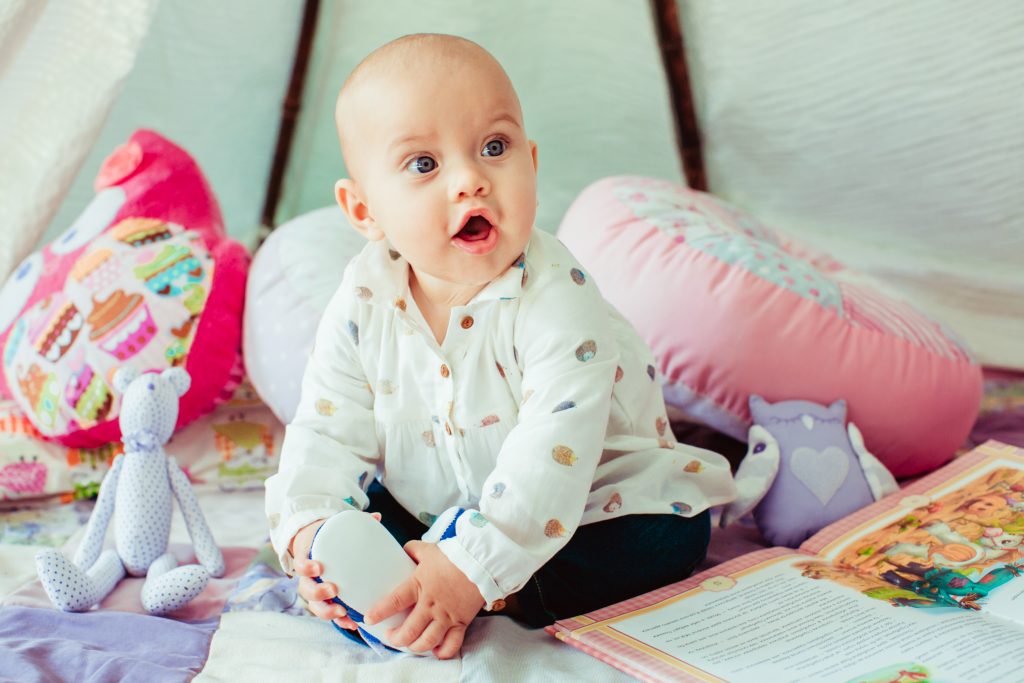Parenting
Keeping Cool: Recognizing Signs of Overheating in Your Baby
Babies are particularly sensitive to temperature changes, and as a parent, it’s essential to monitor their comfort and well-being, especially during warmer months. Overheating can be a serious concern for babies, as they are less capable of regulating their body temperature compared to adults. In this blog, we’ll explore the signs of overheating in your baby and offer tips to ensure their safety and comfort.
Why is Overheating a Concern for Babies?
Babies have a smaller surface area-to-body weight ratio, thinner skin, and an immature sweat gland system, making them more susceptible to overheating. Overheating can lead to discomfort, heat exhaustion, heatstroke, and even more severe health complications. As a caregiver, being vigilant about your baby’s body temperature is crucial.
Signs of Overheating in Babies:
- Excessive Sweating: While some sweating is normal, excessive sweating on the forehead, neck, or back can be a sign of overheating.
- Flushed Skin: If your baby’s skin appears redder than usual, it may indicate that their body is struggling to regulate its temperature.
- Rapid Breathing: Overheating can cause your baby to breathe faster than usual as their body attempts to cool down.
- Irritability: If your baby becomes fussier and more irritable than usual, it might be due to discomfort from overheating.
- Sleepiness: Overheating can make your baby feel lethargic and excessively sleepy, as their body diverts energy to manage their temperature.
- Warm to the Touch: If your baby’s skin feels hot to the touch, it may indicate that their body is working to cool down.
- Refusing to Feed: Overheating can cause loss of appetite or make your baby less interested in feeding.
- Sunken Fontanelle: If your baby’s fontanelle (the soft spot on their head) appears sunken, it could be a sign of dehydration, which can be exacerbated by overheating.

Preventive Measures to Avoid Overheating:
- Dress Lightly: Dress your baby in lightweight, breathable clothing suitable for the weather. Avoid overdressing, and use layers that can be added or removed as needed.
- Choose the Right Bedding: Use light and breathable blankets and sheets for sleeping. Avoid heavy quilts or comforters.
- Maintain a Comfortable Environment: Keep the room temperature comfortable and avoid direct sunlight. Use a fan or air conditioning if necessary.
- Hydration: Ensure your baby stays hydrated, especially if you are breastfeeding. Offer breast milk or formula more frequently on hot days.
- Cool Bath: A lukewarm bath can help regulate your baby’s body temperature. Avoid cold baths, as they can cause shivering and raise body temperature.
- Limit Sun Exposure: If you’re outdoors, use a wide-brimmed hat, lightweight clothing, and sunshade to protect your baby from direct sun exposure.

Conclusion:
Overheating is a serious concern for babies and should be monitored carefully, especially during warmer months. Being attuned to the signs of overheating, such as excessive sweating, rapid breathing, irritability, and warm skin, can help you take prompt action to ensure your baby’s comfort and safety. By following preventive measures like dressing your baby appropriately, maintaining a comfortable environment, and ensuring proper hydration, you can protect your little one from the discomfort and risks associated with overheating. Your vigilance and proactive care will go a long way in ensuring your baby’s well-being, even during the hottest days.

